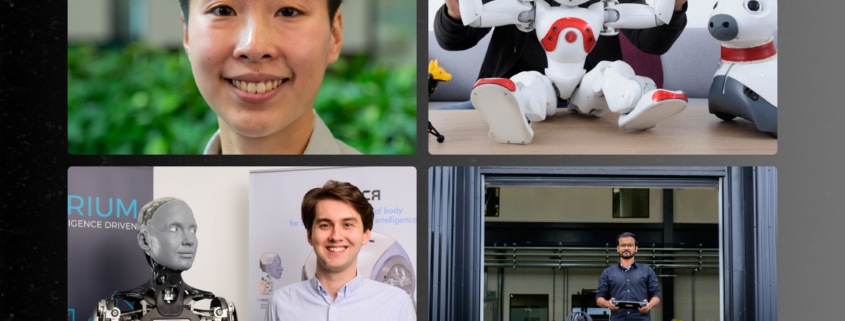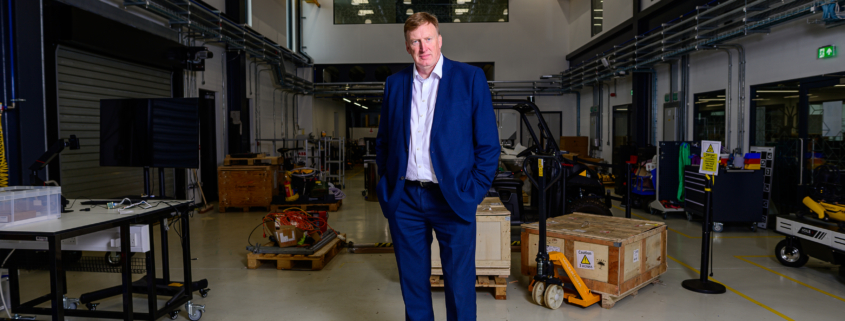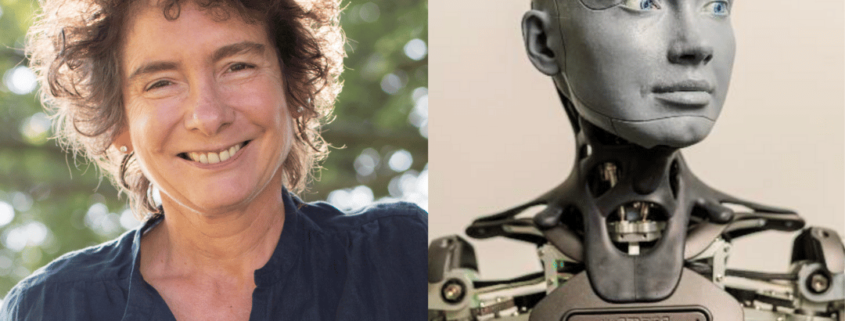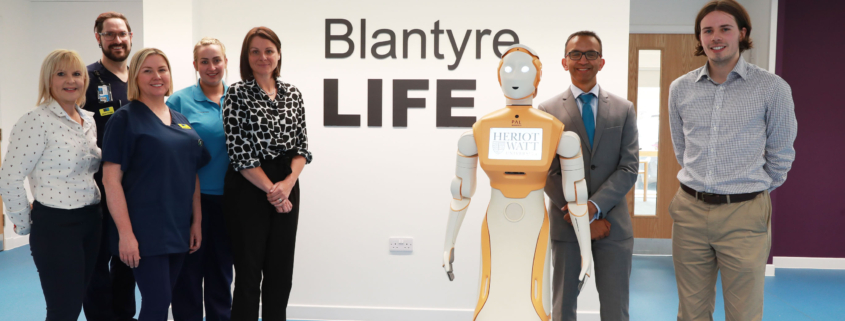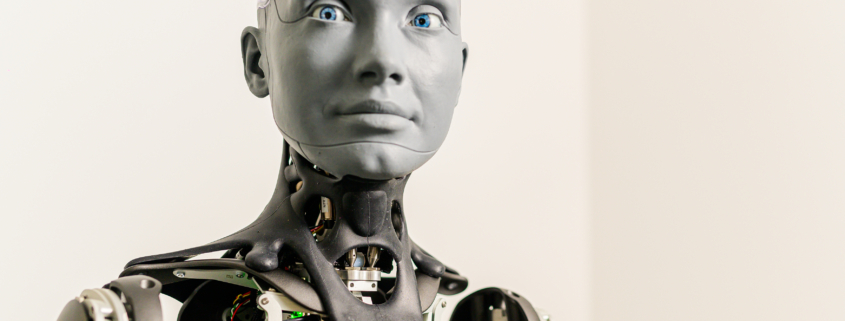To mark National Engineering Day (13 November 2024), we have been speaking to our Robotics Engineers about their career paths, engineering role models and what a typical day is like at the National Robotarium…
Hsing-Yu Chen

Who’s your engineering role model?
One of my key role models in engineering is Morris Chang, the founder of Taiwan Semiconductor Manufacturing Company (TSMC). His technical expertise, leadership and vision have revolutionised the semiconductor industry and made a huge impact on global technology innovation. His emphasis on long-term thinking, collaboration, and focus on excellence in manufacturing processes continues to inspire me in my own work.
What in your mind is an example of good engineering?
An example of engineering that truly inspires me is the development of reusable rockets. This breakthrough in space technology shows us the power of dreaming big and pushing the boundaries of what’s possible. The ability to reuse rockets—once thought to be impossible—has the potential to completely reshape the aerospace industry, opening up new possibilities for space travel and exploration.”
What is typical day like as a Robotics Engineer?
A typical day for a robotics engineer begins with problem-solving, addressing challenges and issues related to the robots they are developing. This entails brainstorming innovative solutions to optimize robot performance, troubleshooting both hardware and software components, conducting experiments to validate the robots’ functionality, and delving into data analysis. Given the collaborative nature of their work, engineers often engage in ongoing communication with team members and clients.
What skills are required to be a good engineer?
Beyond technical proficiency, being a good engineer relies on essential problem-solving and critical thinking skills, enabling the identification and resolution of intricate engineering challenges. Equally critical is a commitment to continuous learning and stay attuned with this rapidly evolving field, ensuring that engineers can adapt to new technologies and innovate effectively.
How does engineering improve people’s lives?
Robotics engineering plays a pivotal role in enhancing people’s lives in numerous ways. For instance, the creation of surgical robots and prosthetic limbs improves the quality of medical treatments and enhances the lives of patients. Autonomous vehicles not only increase transportation efficiency but also enhance road safety. Assistive robots simplify daily tasks, making life more convenient and accessible for individuals. These advancements underscore the transformative impact of robotics engineering on our daily existence and overall well-being.
How can engineering help us live and/or work more sustainably?
Robotic engineering offers substantial potential to enhance sustainable living and working in various domains. This can be achieved by automating industrial processes to boost efficiency, optimising resource utilisation to reduce consumption and lower carbon emissions, improving recycling rates through precise sorting, and monitoring environmental changes. These technologies have the potential to create a more environmentally friendly and resilient world.
Hari Lakshman
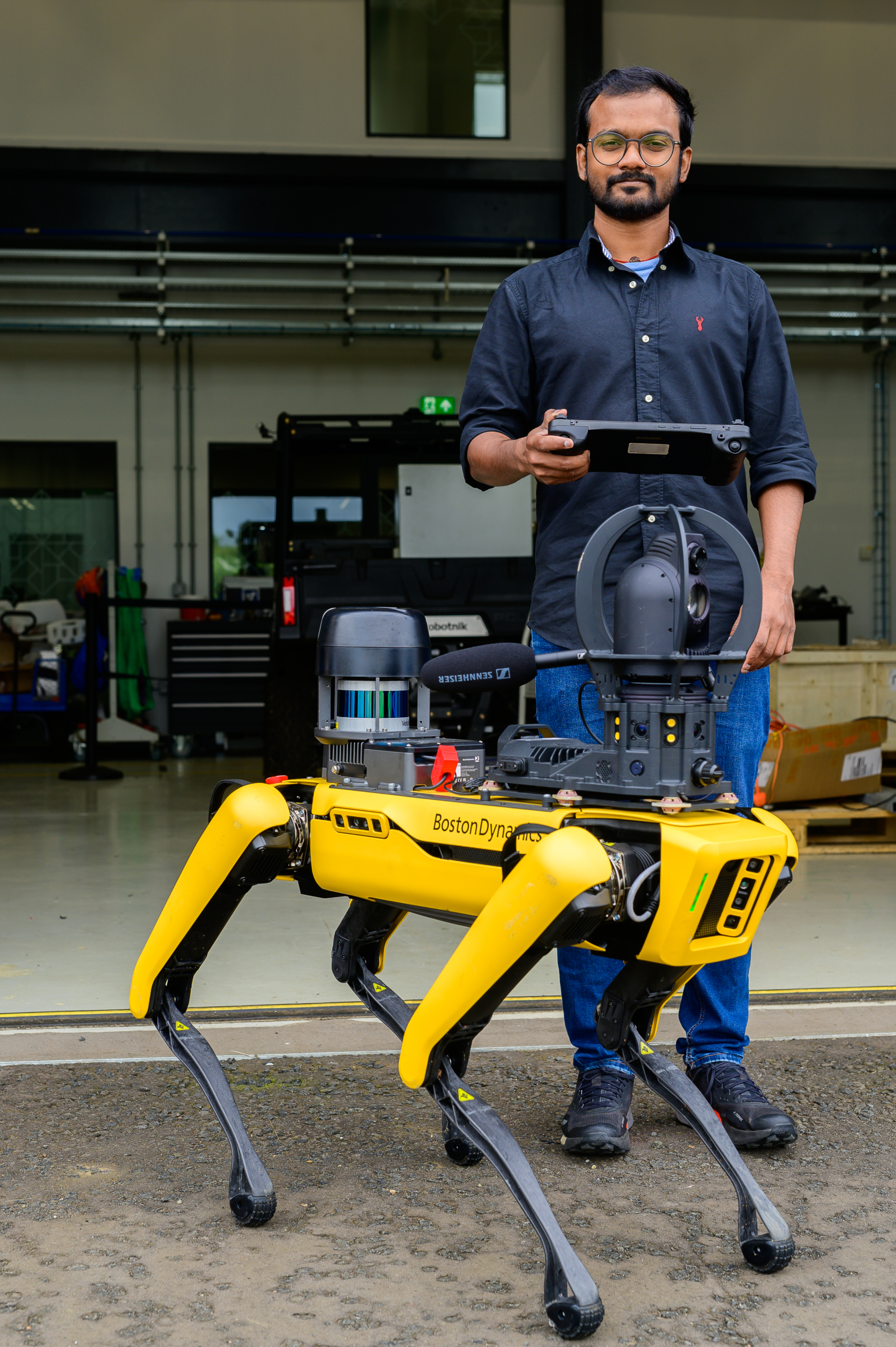
Who are your engineering role models?
The reason I pursued an engineering career was after watching an animated video about Nikola Tesla’s life. Reading about his work, dedication, and passion to keep inventing things inspired me to follow in his footsteps. Another inspiration in my life is Henry Ford, who taught me so much about tech business, optimisation, and efficiency.”
Can you give an example of good engineering that inspires you?
The pyramids are the first engineering marvel that blew my mind; it’s exhausting even to imagine the methods ancient people might have used to build such a magnificent structure. Another marvel is the Chandra X-ray Observatory, which enables scientists to collect data and images for space research. This incredible piece of engineering has revolutionised space science research.”
What does the role of Robotics Engineer involve?
Robotics engineers involve themselves in various fields of engineering. It is always a big learning curve, sometimes building robots feels like creating a human child. We have knowledge in coding, software development, and designing prototypes, which involves an extensive understanding of mechanical engineering, electrical engineering, and control systems. We try and implement cutting-edge machine learning and AI algorithms to make the robot more intelligent and more efficient. For me, I’m still learning lots and lots to become a fine-tuned robotics engineer.
What skills are required to be a good engineer?
Robotics engineers should have skills such as critical thinking and design thinking, programming, active learning, teamwork, safety skills and leadership qualities.
How does engineering improve people’s lives?
Engineering helps to improve people’s lives in every possible way: economically, and ethically, it helps to improve quality of life, solve societal problems, fight against climate change and more. At the National Robotarium, we use our engineering skills to build robots that can help people with physically or mentally challenging tasks, and improve efficiency and cost-effectiveness.
Ronnie Smith
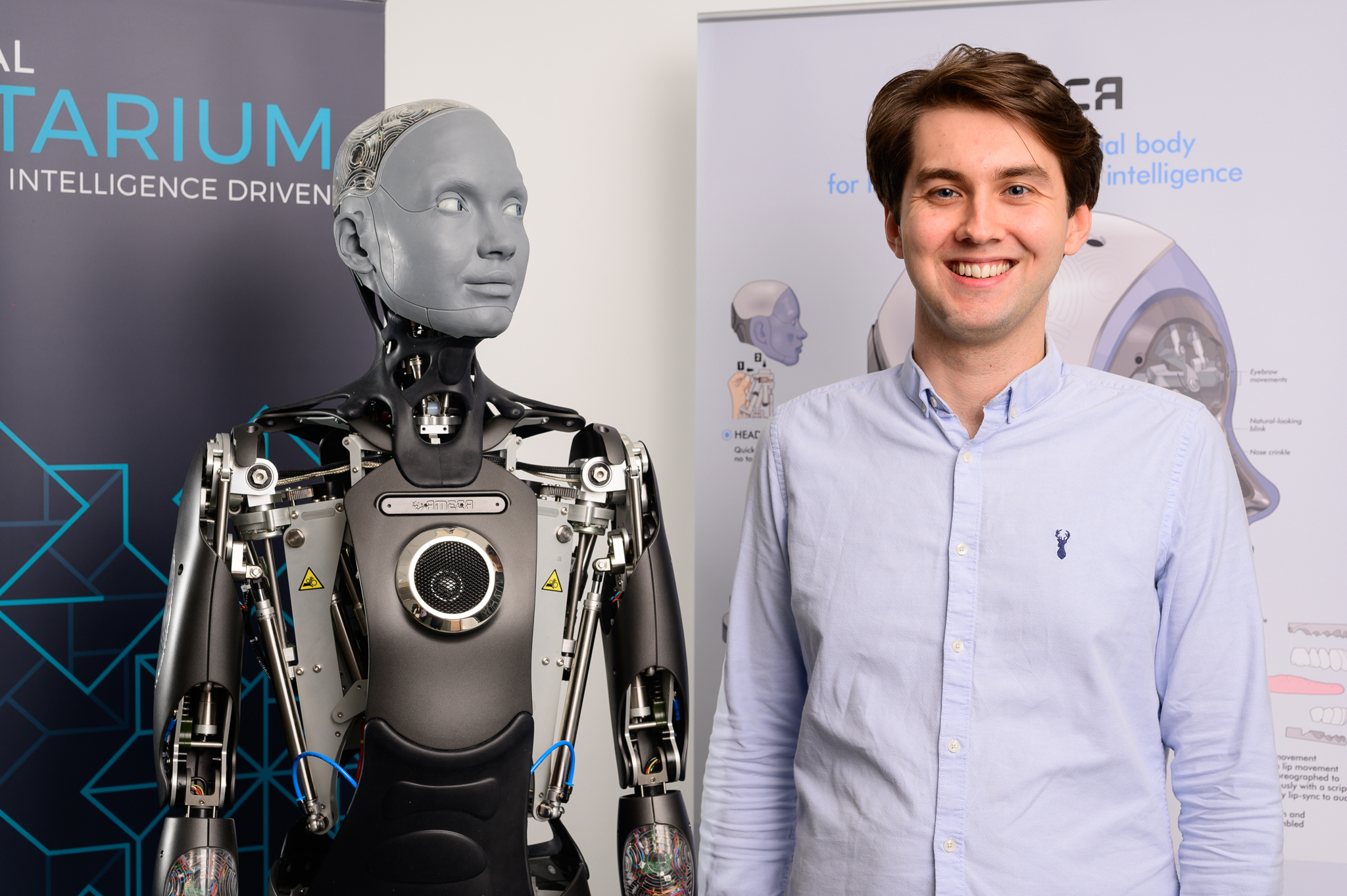
What is typical day like as a Robotics Engineer?
What you spend most of your time on day to day depends on your own role within the team. Some engineers can spend most of their day at a computer doing design or programming, while others might do largely hands on work building, extending, debugging, and maintaining robots. Since we tend to work on multiple projects at once, most days start by figuring out what to prioritise. For me, a typical day might involve some proposal writing, development work, project team meetings, and monitoring/debugging some of the robots we are testing as part of ongoing projects.
What skills are required to be a good engineer?
Since robotics is such an inter-disciplinary field, I think there is no fixed set of skills to be a robotics engineer. I think a good robotics isn’t necessarily someone who is an expert in all aspects of robotics, but rather someone who has their own strengths in a few core areas and who is interested in learning about the whole robotic system to the point where they can understand how everything fits together. This applies to myself, as I come from mainly a software background, but am keen to use my time at the National Robotarium to learn and become a more “rounded” robotics engineer.
How does engineering improve people’s lives?
Most of the time, when engineers are working on a problem it is in the name of improving our comfort, efficiency, safety, or our general quality of life. Robotics is a field which has the potential to touch on all of these aspects. In my previous role as a PhD student, we worked on assistive robotics and technology for older adults. Through user engagement we worked to understand the ways in which collaborative robotics can enable individuals to live in their own home for longer by automating aspects of daily tasks that might otherwise be impossible to complete alone.
How can engineering help us live and/or work more sustainably?
One of the main ways that robots can aid with sustainability is by being more efficient than the solutions that came before. What is meant by efficiency will of course differ across domains, but for example in manufacturing this might mean process efficiency which increases hourly output for the same or less energy. On the other hand, in agriculture it could be that increased precision in turn leads to increased efficiency, e.g., more accurate and targeted spraying of crops conserves resources.
Can you give an example of good engineering that inspires you?
I would look to the semiconductor industry and the advancement of the transistor-based processor over the past several decades as an example of inspiring engineering. Computers today are using billions of tiny transistors, manufactured at nanometre scale, to perform trillions of mathematical operations every second. This achievement has relied on back-to-back advancements and innovation across materials science, lithography, quantum physics, and of course computer and electronics engineers. To me, this is a shining example of human ingenuity and our ability to work together on a large scale to create technology that is so pervasive and seamless that we are able to take it for granted.
Rahul Ramachandran
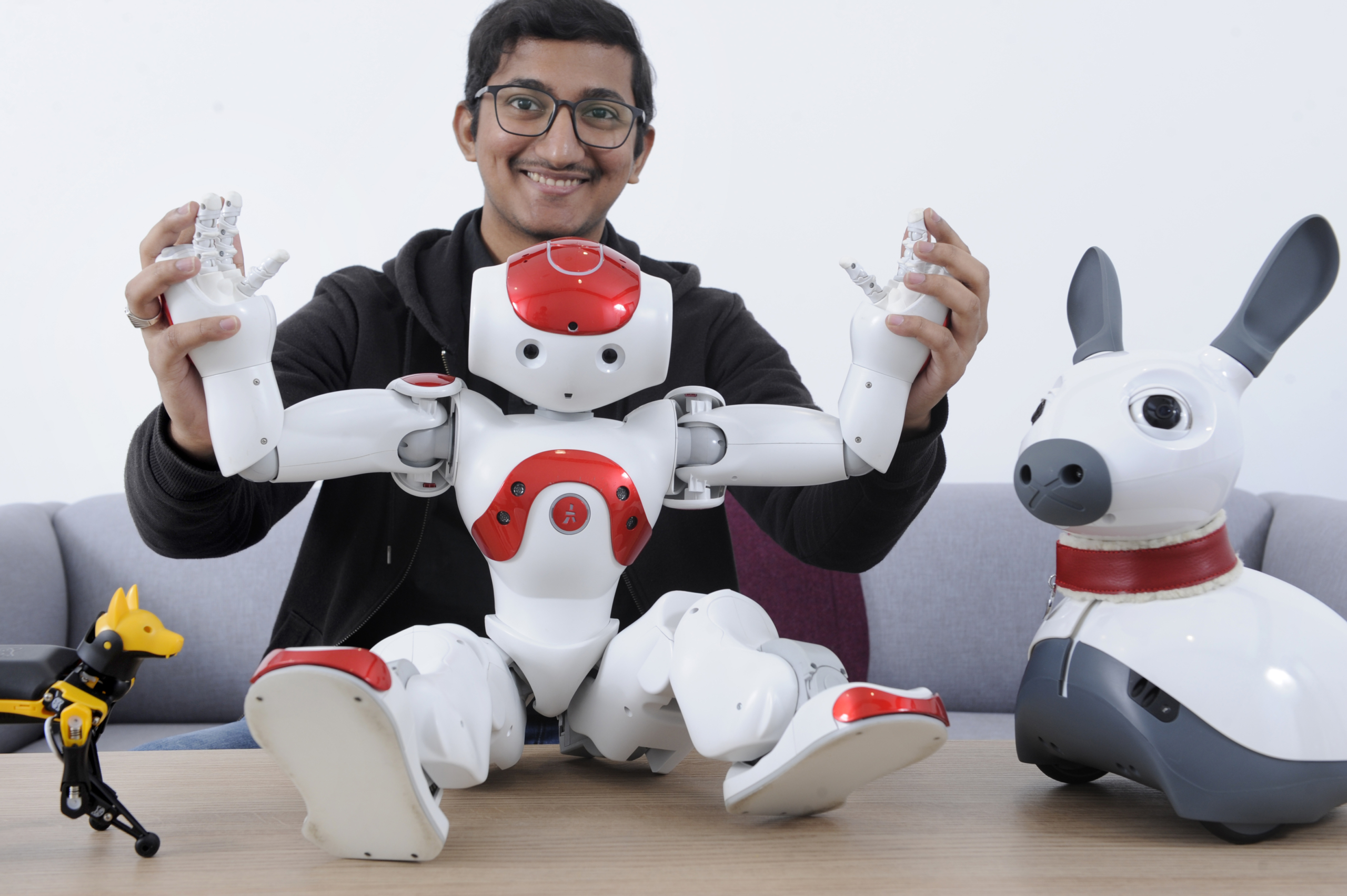
Who are your engineering role models?
The Wright brothers and Dr. A.P.J. Abdul Kalam are two of my biggest role models. The Wright brothers’ achievement in creating the first successful powered airplane inspires me with their relentless pursuit of innovation and their ability to overcome doubt and failure. Similarly, Dr. Kalam’s perseverance and contributions to ISRO, especially his leadership in missions like India’s Mars Orbiter Mission, remind me of the importance of vision and hard work in achieving groundbreaking results. Both have shown me that with determination and passion, it’s possible to change the course of history.
Can you give an example of good engineering that inspires you?
One piece of engineering that really inspires me is the Moog synthesizer. What I love about it is how it simplified the complex technology of earlier electronic instruments, making it easier for musicians to use. The design is so elegant, and the way it combines innovation with simplicity was groundbreaking at the time. The Moog didn’t just change the way music was made; it made a complex tool feel accessible, showing how thoughtful design can open up new possibilities and spark creativity in unexpected ways.
What does the role of Robotics Engineer involve?
Robotics is an interdisciplinary field and because of that robotics engineer’s role depends on one’s engineering background, be it mechanical, electrical, computer science, sociology or applied physics. For example, a robotics engineer with a degree in Mechanical Engineering would work on the design and modelling of robot mechanics, whereas one with a background in electrical and electronics engineering would develop the robot’s battery management system and its sensors and actuators.
What skills are required to be a good engineer?
I believe that to be a good engineer, you must be able to understand the need for an engineering solution to any given problem. It’s not the “what” and “how” but the “why” that comes first.
Be curious, take inspiration from nature and question EVERYTHING! Analytical thinking is very important as is the ability to communicate effectively in a collaborative environment. It is helpful to have an engineering degree, but it is not always necessary if you have the proper knowledge and practical skills.”
How does engineering improve people’s lives?
We live in a world where everything we see has been engineered for us to live a better life, especially in today’s modern digital world, where everything is data-driven. We now have self-driving cars and text-to-speech solutions such as Okay Google, Alexa and Siri which enable us to make calls and play songs using voice commands.
At the National Robotarium, we are developing solutions such as unmanned underwater robots to undertake the inspection of offshore turbines, which is currently being done by deep-sea scuba divers. We are also improving the quality of life for many people doing repetitive tasks in factories by developing solutions for factory automation, which will enable people to safely undertake less repetitive and more skilled tasks side-by-side with robots.


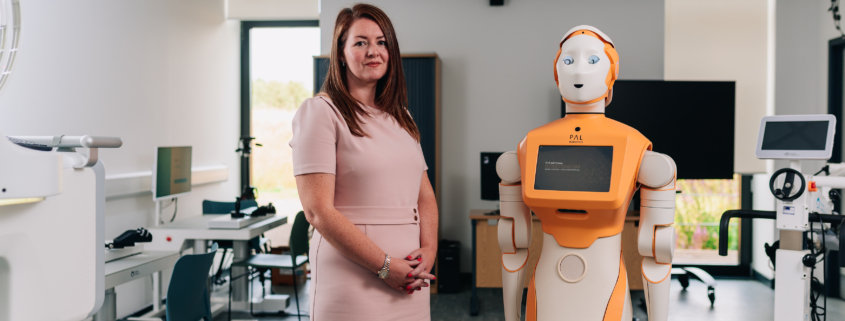

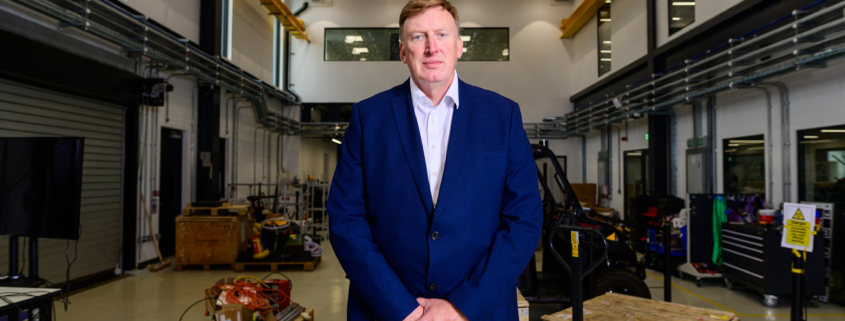 Ben Glasgow photography
Ben Glasgow photography